Elizabeth Van Lew
- Written by Mark Weaver
Elizabeth Van Lew was one of the most daring and successful spies of the American Civil War. During the war, she ran an extensive intelligence operation in the Confederate capital of Richmond, Virginia. She was so skilled at what she did that Union General Ulysses S. Grant would later write to her, "You have sent me the most valuable information received from Richmond during the war."
Miss Van Lew, as she was commonly known, helped Union prisoners escape and hide, communicated directly with Union Generals, planted a network of spies throughout Richmond, and much more. In one instance, she was even involved in stealing a dead Union officer's body and sneaking it away from Richmond to be buried under the care of a Union sympathizer.
All told, Miss Van Lew was even more successful than another well known Civil War woman, her Confederate counterpart in espionage, Belle Boyd.
You may be wondering, how does one of the most prominent daughters of Richmond become a super spy for the Union? Well, it's a pretty good story...
Elizabeth Van Lew was born in October of 1818 in Richmond, Virginia. During her childhood, Elizabeth was considered to be the most stubborn of the three Van Lew children. Her parents were John and Eliza Van Lew.
John Van Lew had come to Richmond at the age of sixteen, and by his mid thirties had built a successful hardware business. His new-found wealth made the Van Lew family one of the most prominent in the city.
As a teenager, Elizabeth was sent to a Quaker school for girls in Philadelphia, Pennsylvania. There, she became convinced that slavery was wrong and should be abolished. She took this belief back to Richmond, where it became her most defining feature.
Despite advocating for the abolition of slavery, Elizabeth did not consider herself to be an 'abolitionist,' “I was never an abolitionist. Abolitionists are fanatics who will stop at nothing to achieve their goals. I have always spoke out against slavery, for which I paid dearly in the loss of many friends. But I was never a fanatic.”
Despite her urging, her father refused to free his slaves. He passed away in 1843, and after much insistence from Elizabeth, her mother agreed to free their slaves, but Elizabeth was only beginning her work...
Upon her fathers death, Elizabeth inherited about 10,000 dollars (roughly equivalent to 200,000 dollars today). She immediately spent all of it buying and freeing relatives of her family's former slaves.
When civil war seemed imminent, Elizabeth Van Lew advocated strongly that Virginia not leave the Union, but her efforts were of no avail. When war broke out, she determined to do what she could to aid the Union cause...
Civil War Spy
Initially, Elizabeth Van Lew simply worked to aid the Union prisoners being held in Richmond. She first got permission to bring food and other comforts to the prisoners at Libby Prison. There, she used buttermilk and gingerbread to gain the "kind feelings" of the prison commander, Lieutenant David H. Todd (half brother of Mary Todd Lincoln, Abraham Lincoln's wife).
Many citizens of Richmond did not approve of her efforts to aid the enemy, and the uproar reached such levels she was banned from visiting the prisons.
Elizabeth Van Lew then appealed to Richmond Provost Marshal, General John H. Winder. She was successful in using his vanity to regain permission to visit the prisons, and later remarked, "Oh, I can flatter almost anything out of old Winder; his personal vanity is so great."
Along with bringing comfort to the Union prisoners she aided, she also aided them in their efforts to escape. It is believed that she often hid escaped prisoners in a secret room in her attic (left). These efforts soon led to a more active role as a Union spy...
In 1863, Miss Van Lew and her Richmond network of Union sympathizers helped two Union soldiers escape from prison and get back through Union lines. These two men told stories of what all she did right under the noses of the Confederate leaders. Soon, Union General Benjamin Butler heard the stories, was impressed, and sent a man to recruit Miss Van Lew to spy for him. Thus began her career as a spymaster...
Butler's man instructed her to send any information she gathered in coded dispatches. She was taught how to write her messages in a colorless ink which would only become visible after it was soaked in milk. Sounds kind of like a cheesy movie doesn't it? ...but its all true!
Elizabeth Van Lew soon established a five station relay line by which her messages were quickly carried from her home (the stately Van Lew Mansion, pictured below) in Richmond to the Union high command. One popular story concerning her message-line, tells that she would sometimes deliver fresh flowers and a Richmond morning paper directly to General Grant.
She often used her former slaves to carry her messages. Sometimes they would be hidden in a shoe, sometimes sewn into the work of a seamstress, sometimes hidden in a hollowed out egg in a basket of regular eggs. Whatever the case, her messages always got through unmolested.
After the war, Miss Van Lew requested that the War Department return to her all the messages she had sent. When they had complied, she quickly destroyed all the messages in an effort to hide the extent to which she had helped the Union during the war. Because of this, only one of her dispatches has survived, and it is believed that this dispatch triggered the infamous Dahlgren Affair:
"DEAR SIR, -- It is intended to remove to Georgia all the Federal prisoners; butchers and bakers to go at once. They are already notified and selected. Quaker [a Union man whom I know] knows this to be true. Are building batteries on the Danville road ... Do not underrate their strength and desperation. Forces could probably be called into action in from five to ten days; 25,000, mostly artillery. Hoke's and Kemper's brigades gone to North Carolina: Pickett's in or about Petersburg. Three regiments of cavalry disbanded by General Lee for want of horses. Morgan is applying for 1,000 choice men for a raid."
This message was sent at the end of January, and on March second, Union forces attempted a Cavalry raid on Richmond to free those prisoners. Unfortunately, secrecy had not been maintained, and the raid was crushed. While trying to escape, the leader of one of the units participating (21 year-old Colonel Ulric Dahlgren) was killed.
Perhaps out of guilt for having triggered the failed raid, Elizabeth Van Lew formed a plan by which Dahlgren's body was stolen from a Richmond graveyard, smuggled past Confederate pickets, and buried on the farm of a Union sympathizer. A problem arose, however, when Dahlgren's father, a Union Admiral, asked that the body be returned, the Confederates couldn't find it. As a result, the father did not get to bury his son until after the war was over and everything could be sorted out.
Miss Van Lew's Richmond spy network was extensive. It had grown to include clerks in both the Confederate War and Navy Departments. Also, she posted some of her former slaves at strategic points around the city to gather whatever information was possible. Perhaps her most impressive feat as a spymaster, however, was placing someone in the Confederate White House itself...
One of her former slaves was Mary Bowser, a very intelligent young lady whose schooling Miss Van Lew had paid for before the war. Somehow, Mary Bowser managed to get a position as a servant in the Confederate White House.
There she was able to read secret papers, and listen in on important meetings. All the information that she gathered in the home of Confederate President Jefferson Davis was passed, through Miss Van Lew, straight to the Union high command. These ladies were probably the most successful and effective spy team of the Civil War. It is even believed that the two worked together to try to burn down the Confederate White House on one occasion.
After the War
As it became clear that the Confederacy was about to fall, Elizabeth Van Lew had a Union flag smuggled into the city of Richmond; and when the Confederates abandoned the city, she raised the giant (18 ft x 9 ft) flag over her home. It was the first United States flag to fly in the city since Virginia had seceded.
...but she was not content to rest on her laurels. When General Grant sent a special guard to protect Miss Van Lew, they found her in the Confederate Capitol Archives going through papers to see if there was any valuable information to be gathered...
During the war, Elizabeth Van Lew was somewhat of an outcast because of her anti-secession, pro-Union positions; but when it became known that she had been a Union spy, she was treated as a complete social pariah. She once wrote, "No one will walk with us on the street, no one will go with us anywhere; and it grows worse and worse as the years roll on."
Having spent all her family's money to support her espionage efforts, Miss Van Lew soon found herself penniless, with no friends to help her...
Luckily, General Grant remembered her service to the Union Army, and when he became President, in 1869, he appointed Elizabeth Van Lew as Postmaster of Richmond. Unfortunately, when President Rutherford B. Hayes succeeded Grant in 1877, she was not retained as Postmaster.
Once more, she found herself destitute, friendless, and with no hope of providing for herself. Then, some family and friends of a Union officer whom she had helped during the war heard of her plight. These folks put together an annuity which supported Miss Van Lew for the rest of her life.
Elizabeth Van Lew was one of the most proficient American Civil War Spies, and one of the bravest American Civil War Women. All in all, she was a true American Civil War hero...
American Civil War Story - Home
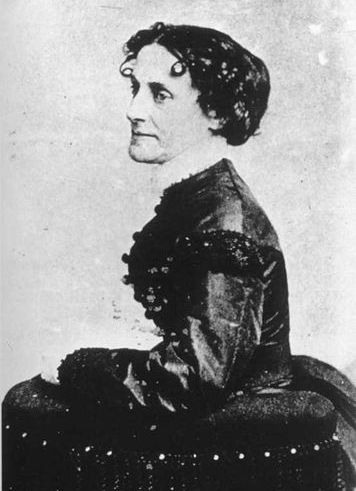

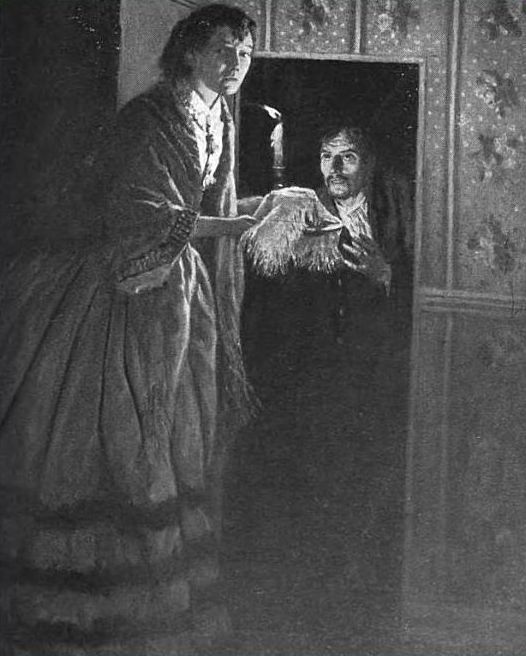
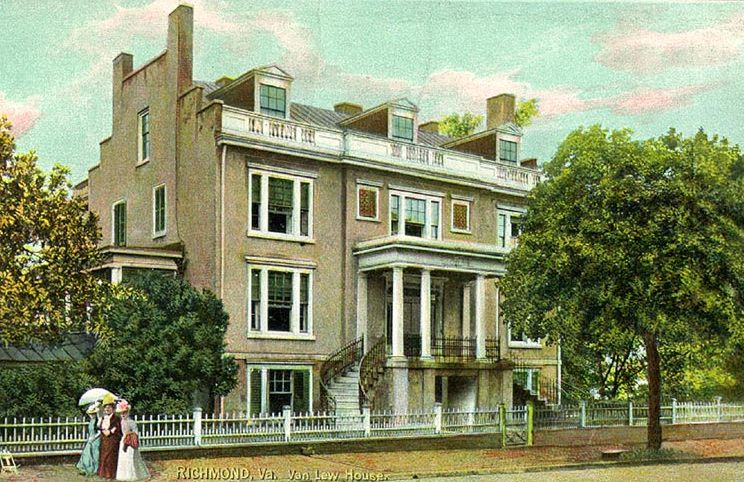
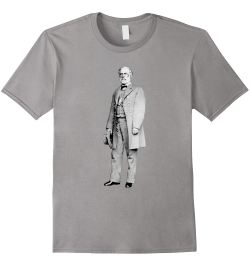




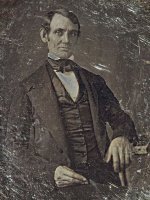
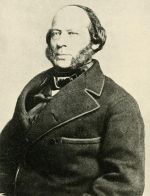
New! Comments
Have your say about what you just read! Leave me a comment in the box below.